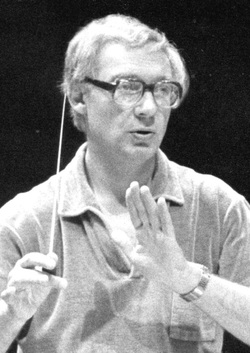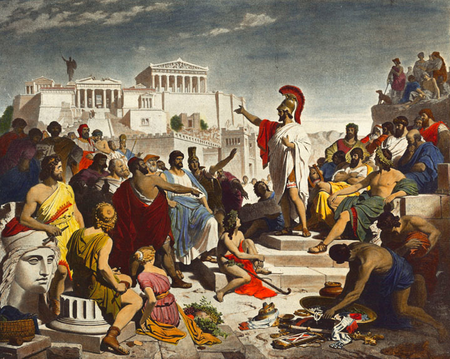Welcome to the Saint Mary choir blog. We are a SATB (ie: four part harmony) choir. We sing at the 10:00am service most Sundays through out the year.We welcome new members to our choir. If you are interested in joining us please contact our Director of Music (Joanna) via the Contact Us page.
There follows a description of some the music that we have sung.
Sunday 28 November 2021
Sunday 28th November 2021 first Sunday in Advent
Sunday 21 November 2021
Sunday 21st November 2021 Evensong at the church of St Mary The Virgin, Barnham
The Magnificat (Latin for "[My soul] magnifies [the Lord]") is a canticle, also known as the Song of Mary, the Canticle of Mary and, in the Byzantine tradition, the Ode of the Theotokos . It is traditionally incorporated into the liturgical services of the Catholic Church (at vespers) and of the Eastern Orthodox churches (at the morning services). It is one of the eight most ancient Christian hymns and perhaps the earliest Marian hymn. Its name comes from the incipit of the Latin version of the canticle's text.
The text of the canticle is taken directly from the Gospel of Luke (1:46–55) where it is spoken by Mary upon the occasion of her Visitation to her cousin Elizabeth. In the narrative, after Mary greets Elizabeth, who is pregnant with John the Baptist, the latter moves within Elizabeth's womb. Elizabeth praises Mary for her faith (using words partially reflected in the Hail Mary), and Mary responds with what is now known as the Magnificat.
Within the whole of Christianity, the Magnificat is most frequently recited within the Liturgy of the Hours. In Western Christianity, the Magnificat is most often sung or recited during the main evening prayer service: Vespers in the Catholic and Lutheran churches, and Evening Prayer (or Evensong) in Anglicanism. In Eastern Christianity, the Magnificat is usually sung at Sunday Matins. Among Protestant groups, the Magnificat may also be sung during worship services, especially in the Advent season during which these verses are traditionally read.
| C V Stanford from Wikipedia |
Sunday 21st November 2021 3rd Sunday of Advent
O Thou the Central Orb Charles Wood
This is one of Wood's many fine anthems. It is suitable for Advent.
Charles Wood (1866-1926) was born in Ireland. He was a treble chorister in the nearby St Patrick’s Cathedral, Armagh. He received his early education in the cathedral choir school and also studied the organ under Robert Turle and Dr Thomas Marks. In 1883, he was one of the inaugural students of the Royal College of Music, studying composition under Charles Villiers Stanford and CHH Parry. After four years he continued his studies at Selwyn College, Cambridge. In 1889 he was appointed as organ scholar in Gonville and Caius college, Cambridge, becoming a fellow in 1994 and Director of Music and organist. Following the death of Stanford in 1924 Wood took over the role of Professor of Music in Cambridge.
He is remembered for his Anglican Church music.
Charles Wood from Wikipedia
Sunday 14 November 2021
Sunday 14th November 2021 Second before Advent. Remembance Sunday
Peter Aston was born in Birmingham. He studied at The Birmingham School of Music and The University of York. In 1964 he was a lecturer in music at The University York. Ten years layter he was appointed Professor of Music at The University of East Anglia and eventually Emeritus Professor of Composition. He is best known for his liturgical works although also wrote chamber works for voice and instrument, choral and orchestral works and an opera for children. He was a lay canon in Norwich Cathedral and founded the Norwich Festival of Contemporary Church Music. He founded the Tudor Consort and English Baroque Ensembles.
 |
| Peter Aston from The Morley Consort of Voices |
"So they gave their bodies to the commonwealth and received, each for his own memory, praise that will never die, and with it the grandest of all sepulchres, not that in which their mortal bones are laid, but a home in the minds of men, where their glory remains fresh to stir to speech or action as the occasion may require."
 |
| Pericles' Funeral Oration by Philipp Foltz |
Sunday 7 November 2021
Sunday 7th November 2021 Third before Advent
"Lead me Lord" from "Praise the Lord, O my soul" by Samuel Sebastian Wesley
"Praise the Lord, O my Soul" was written in 1861 and contains the short anthem "Lead me Lord". It was composed when Wesley was organist at Winchester College and Cathedral. "Lead me Lord " is the final section of the work, and has a wondrous simplicity with 2 short solo parts which lend themselves beautifully for young choristers starting on solo work.
Samuel Sebastian Wesley (1810 - 1876) was the illegitimate son of Samuel Wesley and Sarah Souter, and grandchild of Charles Wesley. He was a choirboy in the Chapel Royal and then embarked on a musical career. He was appointed organist at Hereford Cathedral in 1832 and then married the Dean's sister. He moved to Exeter Cathedral in 1835 and 1842, Leeds Parish Church, 1849 - Winchester Cathedral, 1865 - Gloucester Cathedral. In 1839 he achieved his Bachelor of Music and Doctorate of Music from Oxford. He became Professor of Organ in the Royal Academy of Music in 1850.
His work was almost exclusively for the Anglican church. With Father Willis he is jointly credited with the invention of the concave and radiating pedal board for organ which has now become the standard internationally.
 |
| Samuel Wesley from Wikipedia |
Saturday 6 November 2021
Sunday 31st October 2021 All Saints
"Give us the wings of faith" by Ernest Bullock, words Isaac Watts.
This anthem was written for All Saints' Day, the words from a hymn by Isaac Watts.
Sir Ernest Bullock (1890-1979) was not primarily a composer, but an educationalist and organist. He was born in Wigan, where he became organist at his parish church. He was then assistant organist at Leeds Parish Church in 1907. In 1908, he received his Bachelor of Music from the University of Durham, gaining his Doctor of Music in 1914. In 1912, he was assistant organist at Manchester Cathedral. After WW1 he was organist at St Michael's College, Tenbury, almost immediately moving to Exeter as cathedral organist in 1919. In 1928 he succeeded Sir Sidney Nicholson as Master of Choristers in Westminster Abbey. He provided music for the coronation of King George VI, writing most of the fanfares for that and also the coronation of Elizabeth II in 1953.
In 1941, Bullock went to Glasgow as the Gardiner Professor in Music at the university. In 1952 he became director of the Royal College of Music. He was knighted in 1951 and he retired in 1960.
Isaac Watts (1674-1748) was born in Southampton, the son of a committed religious nonconformist. His father, also Isaac was twice incarcerated for his beliefs. He received a classical education at the King Edward VI school, but was barred from attending Oxford or Cambridge universities as they were restricted to Anglicans. He went to the Dissenting Academy at Stoke Newington in 1690. He was pastor of a large independent chapel in London where he helped train preachers. However, his religious opinions were more ecumenical than was usual for a nonconformist. He promoted education and scholarship rather than preaching for a particular sect. He is famous for the writing of the words of hymns. He promoted hymn singing and his prolific hymn-writing helped to usher in a new era of English worship.
 |
| Isaac Watts, by unknown artist {Wikimedia commons] |
This setting was dedicated to the Rev. John H Ellison M.V.O. Rector of St Michael's, Cornhill, E.C.
Harold Edwin Darke (1888-1976) was born in Highbury, London. His first post as organist was at Emmanuel Church, West Hampstead from 1906 - 1911. He became organist at St Michael's, Cornhill in 1916 and stayed there until 1966, leaving for a short time to deputise for Boris Ord as Director of Music at King's College, Cambridge during the second World War. Darke started lunchtime concerts at St Michel's in 1916 and these are the thought to be the longest running lunchtime organ concert series in the world.
He is best known for his setting of Christina Rossetti's poem "In the bleak midwinter". His othr music still performed are his Communion Services in E minor, F major and A minor, and his Magnificat and Nunc Dimitis in F major.

